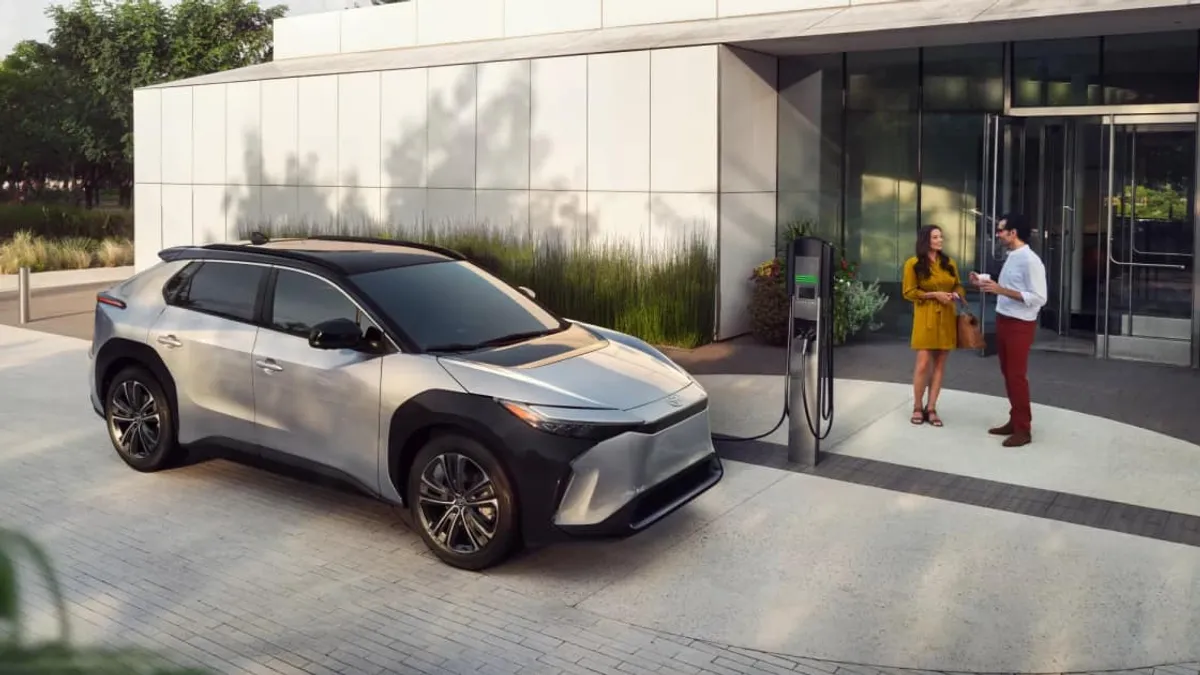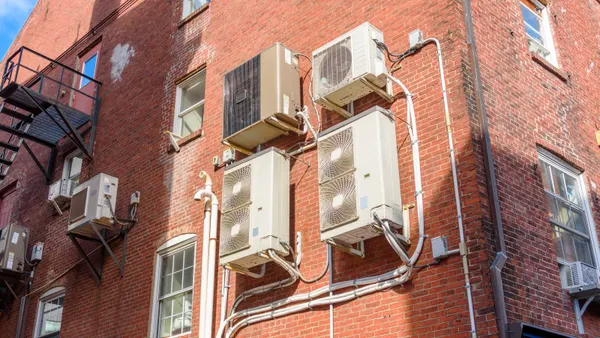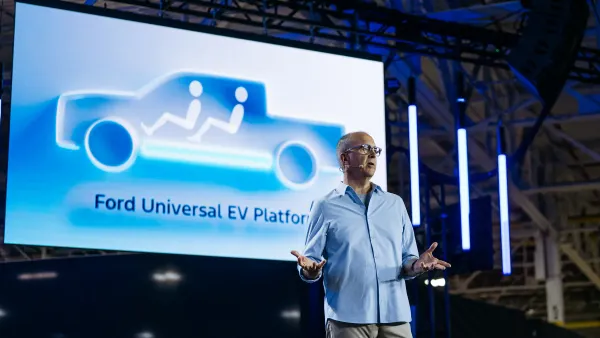Dive Brief:
- Toyota announced a “technical breakthrough” for solid-state electric vehicle batteries that will reduce size, weight and costs by half while delivering ranges up to 745 miles, according to the Financial Times.
- A Toyota executive said the company addressed the durability concerns that plagued its solid-state EV batteries a few years ago.
- Research and development of solid-state EV battery technology could significantly reduce the costs and weight of Toyota’s next-generation EVs, which are expected to launch by 2027, according to the Financial Times.
Dive Insight:
Across the auto industry, solid-state EV batteries, which contain no liquid electrolyte, are considered the most promising technology to reduce costs and charging times, increase safety and significantly extend the range of EVs. In addition, the liquid electrolyte used in current lithium-ion battery cells increases the risk of overheating, which can lead to battery fires, according to the American Chemical Society.
“For both our liquid and solid-state batteries, we are aiming to drastically change the situation where current batteries are too big, heavy and expensive,” said Keiji Kaita, president of Toyota’s CN Advanced Engineering Development Center, in a statement. “In terms of potential, we will aim to halve all of these factors.”
Toyota and its joint venture battery partner Panasonic are also working on an ambitious plan to reduce the size, weight and costs of electric vehicle batteries.
Solid-state battery technology offers four primary benefits: improved safety, higher energy density, faster charging times and longer service life. However, according to J.D. Power, the production of solid-state batteries is more complex and scaling the technology is a challenge that battery makers are working to overcome, including QuantumScape and SolidPower.
California-based QuantumScape signed a joint venture agreement with Volkswagen in 2021 to develop solid-state batteries for the automaker’s future EVs. Solid Power signed a joint venture agreement with BMW in December 2022 to develop solid-state battery cells.
Toyota's latest announcement follows a technical presentation last month where the company said it was targeting charging times for its future EV of 10-20 minutes. Toyota also announced last month that it’s currently developing a method for the mass production of solid-state batteries.
The first Toyota models with these advanced, solid-state batteries are slated to launch in 2027-2028.
However, Toyota will continue developing more advanced liquid electrolyte batteries and solid-state designs.
“There is also room for improvement for liquid-based batteries,” Toyota chief technology officer, Hiroki Nakajima, said to FT. “The crux of the EV battery competition will ultimately be the value added on the car as a product and how much we can control the overall volume of batteries and how effectively we can use them.”
By 2026, Toyota said it will launch EVs with a range of 621 miles.
















